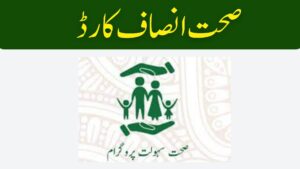Top Challenges in Accounting Assignments and How to Overcome Them

Introduction:
Accounting assignments often pose unique challenges for students pursuing financial studies. From deciphering complex financial statements to mastering intricate calculations, these tasks demand a solid understanding of accounting principles. In this article, we will get to know about the top challenges faced by accounting students in their assignments and will provide practical strategies to fix them. Students can even get Accounting Assignment Help from some sources like expertsmind.com which will help them Excelling in Financial Studies
1. Understanding Complex Financial Concepts:
One of the primary challenges in accounting assignments is grasping complex financial concepts. Many students struggle with intricate topics such as accrual accounting, depreciation, and financial statement analysis. To overcome this obstacle, it’s essential to separate these concepts into smaller, more manageable parts. Looking for explanations from teachers, using course readings, and researching online assets can provide important experiences.
2. Balancing Time Constraints:
Time management is a universal challenge for students, and accounting assignments often require a great amount of time and effort. Overcoming this challenge involves creating a realistic schedule, breaking down tasks into smaller deadlines, and avoiding procrastination. Utilizing tools that can increase student productivity and seeking guidance from classmates or professionals like tutors and professors in the field can also help manage time effectively.
3. Handling Numerical Calculations:
Accounting assignments frequently involve intricate numerical calculations, making it a daunting task for some students. To overcome this challenge, practice is the main key. Doing regular problem-solving exercises, using some accounting software to automate calculations, and seeking assistance from teachers or online platforms can improve numerical proficiency.
4. Interpretation of Financial Statements:
Interpreting financial statements is a crucial skill in accounting assignments. Students often strive hard to analyze income statements, balance sheets, and cash flow statements. Overcoming this problem requires a thorough understanding of financial ratios, industry benchmarks, and consistent practice in interpreting various financial reports. Online tutorials, case studies, and real-world examples can help in developing this skill.
5. Staying Updated with Accounting Standards:
Accounting standards and regulations are subject to frequent updates, posing a challenge for students to stay current. Students should make it a habit to follow relevant industry news, subscribe to accounting journals, and participate in relevant forums or discussion groups on online platforms that will help them solve this problem. Additionally, collaborating with professors and professionals in the field can provide valuable insights into the latest accounting standards.
6. Effective Report Writing:
The crafting of coherent and well-structured reports is another challenge in accounting assignments. Students often struggle with presenting their findings clearly and concisely. Students can hone their writing skills, organize thoughts logically, and seek feedback from peers or instructors to overcome this challenge. Utilizing writing resources, workshops, and templates can enhance report-writing proficiency.
7. Application of Theoretical Knowledge to Real-world Scenarios:
One significant challenge in accounting assignments is the seamless application of theoretical knowledge to real-world scenarios. While students may grasp accounting concepts in a classroom setting, transferring that understanding to practical situations can be daunting. To overcome this, engaging in case studies, internships, or practical exercises can bridge the gap between theory and application. Seeking guidance from industry professionals or alumni with practical experience can provide valuable insights.
8. Managing Voluminous Data:
Accounting assignments often involve dealing with large volumes of financial data, which can be overwhelming for students. Managing and analyzing this data efficiently is a crucial skill. Utilizing spreadsheet software, databases, and accounting tools can streamline the process. Additionally, learning data visualization techniques can aid in presenting information in a more comprehensible and impactful manner.
9. Keeping Pace with Technological Advancements:
The accounting landscape is evolving with technological advancements such as cloud computing, artificial intelligence, and blockchain. Keeping up with these changes poses a challenge for students. To overcome this, staying informed about emerging technologies in the accounting field, enrolling in relevant courses or workshops, and experimenting with accounting software can enhance technological literacy. Collaborating with tech-savvy peers or mentors can also provide valuable insights.
10. Ethical Dilemmas in Accounting:
Ethical considerations are inherent in the field of accounting, and students often grapple with ethical dilemmas in their assignments. Balancing the pursuit of financial accuracy with ethical responsibilities can be challenging. To navigate this, students should familiarize themselves with professional codes of conduct, engage in ethical decision-making discussions, and seek guidance from ethical case studies. Creating a strong ethical foundation early in one’s academic journey can positively influence decision-making in complex scenarios.
11. Group Collaboration and Communication:
Many accounting assignments involve group projects, requiring effective collaboration and communication among team members. Differing schedules, communication styles, and conflicting opinions can hinder progress. To overcome these challenges, establishing clear communication channels, defining roles and responsibilities, and utilizing project management tools can enhance group collaboration. Holding regular meetings, providing constructive feedback, and addressing conflicts promptly contribute to a positive group dynamic.
12. Adapting to Different Accounting Software:
The use of accounting software is integral to modern accounting practices, and students are often required to adapt to various platforms. Learning different software interfaces and functionalities can be time-consuming and confusing. To overcome this challenge, students can participate in software training programs, access online tutorials, and leverage trial versions of accounting software. Seeking assistance from professors, classmates, or online forums when encountering difficulties with specific software can expedite the learning process.
Conclusion:
In the realm of financial studies, accounting assignments serve as crucial milestones for students. By recognizing and actively addressing the challenges identified above, students can substantially improve their performance in these assignments. Whether through seeking guidance from professors, leveraging online resources, or collaborating with peers, mastering the art of accounting assignments is within reach for those willing to navigate the ledger with determination and strategic planning.






